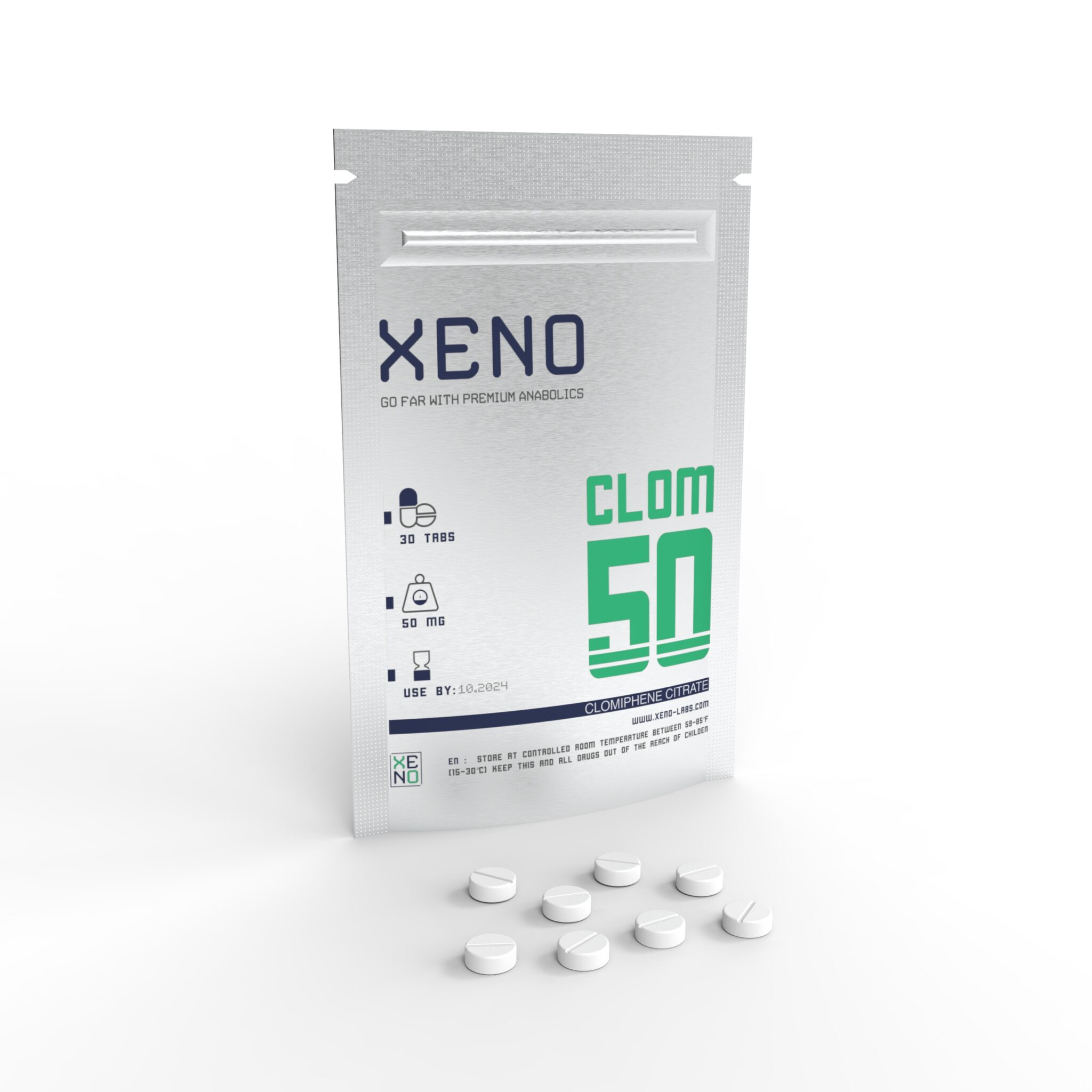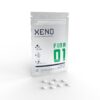Clom(Clomid 50) 50
58.50$ Original price was: 58.50$.49.50$Current price is: 49.50$.
- EUR: € 41.96
| Raw Material: | Clomiphene Citrate |
|---|---|
| Manufacturer: | Xeno Labs US |
| Package: | 30 TABS (50 MG/TAB) |
Clomiphene citrate (brand names like Clomid 50, Serophene) is a popular fertility medication used to treat female infertility. If you’re struggling with ovulation problems, PCOS (polycystic ovary syndrome), or other hormonal imbalances, Clomiphene Citrate may be the key to helping you achieve pregnancy. This oral fertility drug is prescribed to stimulate ovulation, making it a first-line treatment for women who have difficulty releasing eggs.
What is Clomiphene Citrate and How Does It Work?
Clomiphene citrate is an ovulation-stimulating medication that helps women with irregular ovulation or anovulation (the absence of ovulation). It works by blocking estrogen receptors in the brain, which tricks the body into thinking estrogen levels are low. This results in increased production of FSH (follicle-stimulating hormone) and LH (luteinizing hormone), two hormones essential for stimulating the ovaries to produce mature eggs.
Why Clomiphene Citrate is Used for Infertility
Clomiphene is commonly used for treating infertility caused by conditions like PCOS and unexplained infertility. For women struggling to conceive, Clomid helps improve ovulation rates, giving women a better chance at becoming pregnant. Many women who take Clomid for PCOS see successful ovulation after just one or two cycles of treatment.
How to Take Clomiphene Citrate
Clomiphene citrate is typically prescribed in a 50 mg dose for five consecutive days during the early part of a woman’s menstrual cycle. It is important to start this medication under the supervision of a fertility specialist to ensure the right dosage and treatment cycle.
For women who do not respond to the initial dose, doctors may increase the dosage, up to a maximum of 150 mg per day. Clomid for ovulation induction has a success rate of around 80% in inducing ovulation, with many women conceiving within the first three to six cycles.
Clomiphene Citrate Success Rate
One of the reasons Clomiphene citrate is so commonly used for infertility treatment is its impressive success rate. Approximately 80% of women taking Clomid will ovulate, with around 30-40% of them achieving pregnancy within the first six cycles. These statistics make Clomiphene a first-line treatment option for many women struggling with infertility and ovulation disorders.
Benefits of Clomiphene Citrate
-
Affordable and Accessible: Compared to other fertility treatments like IVF, Clomid 50 is relatively inexpensive and easy to access.
-
Effective Ovulation Induction: Clomiphene helps stimulate ovulation in women with irregular periods or PCOS.
-
Non-invasive Treatment: Unlike more invasive procedures like IVF, Clomiphene is taken in pill form, making it less stressful and more comfortable for patients.
Side Effects of Clomiphene Citrate
While Clomid for ovulation induction is generally safe, some women may experience mild to moderate side effects, including:
-
Hot flashes
-
Mood swings
-
Nausea and bloating
-
Headaches
-
Breast tenderness
In rare cases, Clomid can cause more serious side effects, such as ovarian hyperstimulation syndrome (OHSS), where the ovaries become swollen and painful.
Clomiphene Citrate vs. Other Fertility Treatments
When compared to other fertility treatments, Clomiphene is less invasive and more cost-effective. It is often the first treatment recommended by doctors for women with PCOS, unexplained infertility, or ovulatory disorders. However, for women who do not respond to Clomid after several cycles, advanced treatments like IUI (intrauterine insemination) or IVF (in vitro fertilization) may be considered.
Is Clomiphene Citrate Right for You?
If you’re struggling with infertility due to ovulation issues, Clomiphene Citrate could be an effective treatment. It is important to consult with your healthcare provider to discuss your fertility goals, any underlying health conditions, and whether Clomiphene is a suitable option for you.
Conclusion
Clomiphene Citrate is one of the most widely prescribed medications for female infertility, especially for those experiencing ovulation problems. With its proven ability to induce ovulation and improve pregnancy chances, Clomid 50 remains a popular choice for women struggling to conceive. If you’re considering Clomiphene as part of your fertility journey, always consult with a healthcare provider to ensure the best course of action.
Related products
Driada
- EUR: € 25.43
American Brand
- EUR: € 148.33
Driada
- EUR: € 33.06
Beligas Pharmaceutical - Int'l
- EUR: € 38.14
Beligas Pharmaceutical
- EUR: € 51.69













